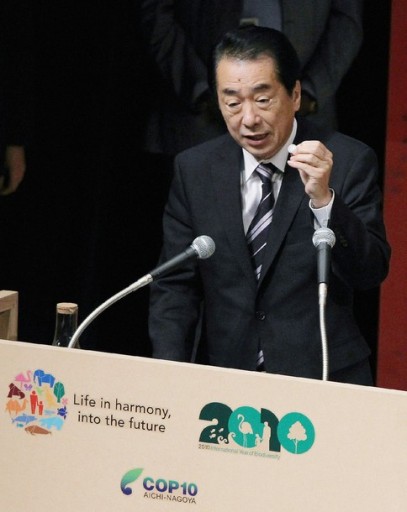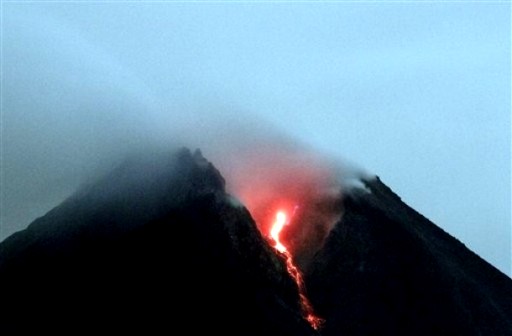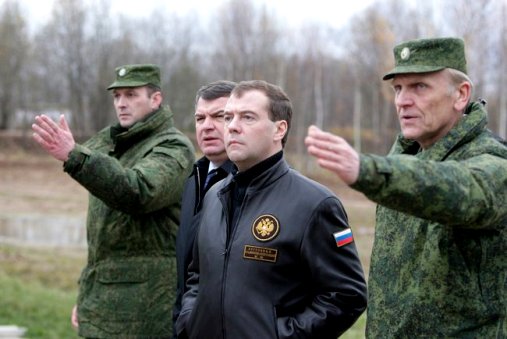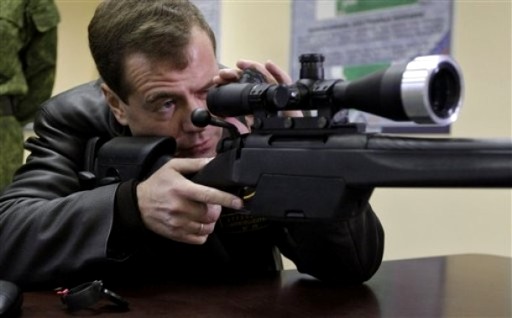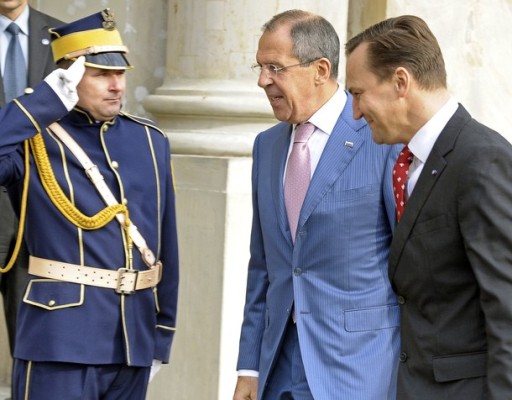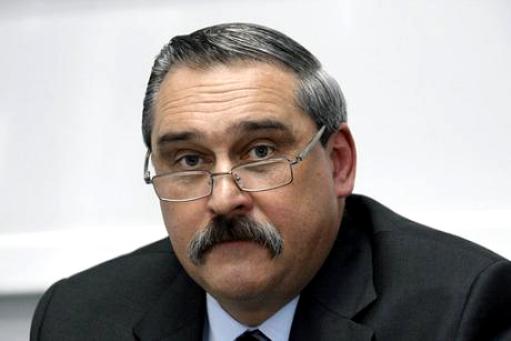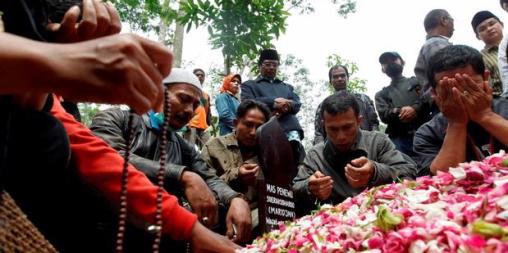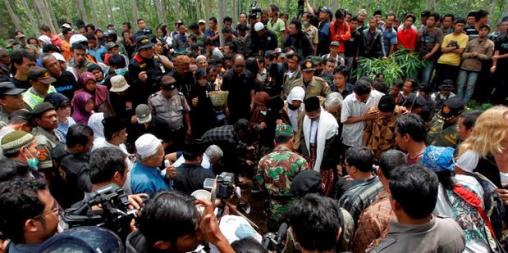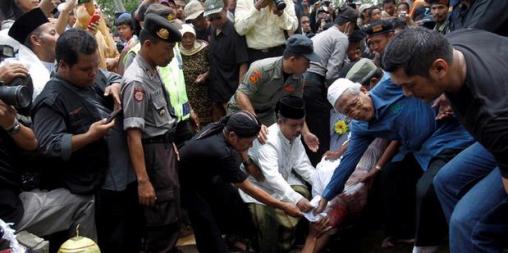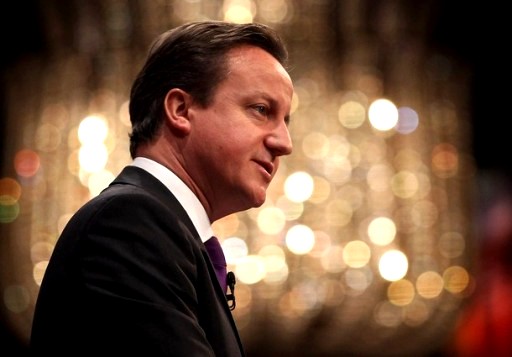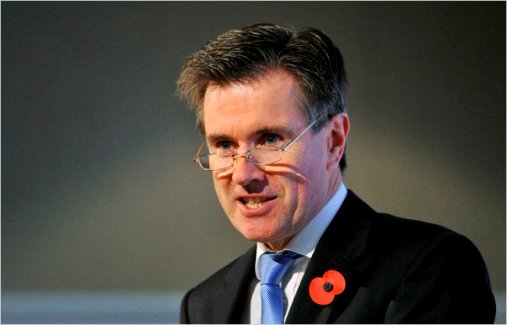Please also visit : KATAKAMIDOTCOMNEWSINDONESIA.BLOGSPOT.COM
October 29, 2010 (KATAKAMI / UK EMBASSY IN INDONESIA) --- UK Secretary of State for International Development Andrew Mitchell said:
"Our sympathies go out to those affected by these disasters. We are in close contact with the Government of Indonesia and stand ready to help if necessary."
Please also visit : INDONESIAKATAKAMI.WORDPRESS.COM and News Portal KATAKAMI.COM (Indonesian Language). Follow KATAKAMI on TWITTER : WWW.TWITTER.COM/KATAKAMIDOTCOM
Oktober 29, 2010
Japanese Prime Minister Naoto Kan offers condolences over Indonesian disasters
October 29, 2010 Jakarta (KATAKAMI / ANTARA News) - Japanese Prime Minister Naoto Kan extended deep condolences over consecutive natural disasters which had hit Indonesia in the past few weeks, thus causing a big number of casualties on the people.
Indonesia, this month, was already hit by three devastating disasters of Wasior flash flood in West Papua, followed by an earthquake-triggered tsunami in Mentawai district, West Sumatra, then volcanic eruption in less than 24 hours in Central Java.
"I really feel sad when hearing many victims were killed and many of residents in the affected areas are in a state of difficulty resulting from quake happening on October 25, in Mentawai and eruption of Mount Merapi in Central Java which had been started on October 26, a release from the Japanese embassy made available to ANTARA said here on Thursday.
The Japanese Prime Minister also said his country was available to provide such maximal aid to the families of the disaster.
In addition, Australia was reported to provide up to $1 million of emergency assistance to help Indonesia in the wake of two devastating disasters, according to the Australian Embassy here in its wesite on Thursday.
Australia regretted the loss of life and damaged caused by the tsunami and earthquake in Mentawai and the volcanic eruption on Mount Merapi.
Australia`s Charge d`Affaires to Indonesia Paul Robilliard said that Australia stands ready to provide further assistance should Indonesia require additional support and is monitoring the situation closely.
"Australia is always keen to assist Indonesia in times of need. We are working with our Indonesian counterparts to quickly and precisely respond to these disasters," Robilliard said.
Australia`s initial support package will consist of funding to SurdAid for assessment, relief and recovery activities to the Mentawai Islands, the Indonesian community organisations Nahdlatul Ulama and Muhammadiyah to help local communities recover following the eruption, and the Indonesian Red Cross for humanitarian assistance in the Mentawai Islands and Mount Merapi area.
On 26 October 2010 Indonesia reported that a 7.2 magnitude earthquake struck the Mentawai Islands, shortly followed by a tsunami. On the next day, a volcanic eruption on Mount Merapi occurred near Yogyakarta. These disasters caused a number of deaths and injuries.
Indonesia volcano erupts again
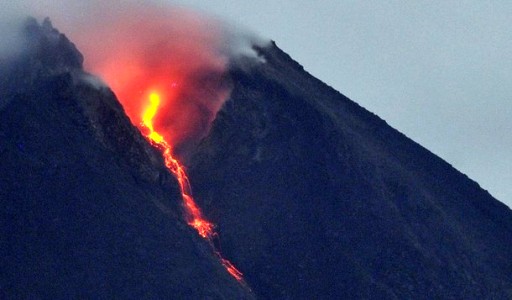
- Mount Merapi volcano releases lava for the first time since its latest round of activity began earlier this week taken from Cangkringan, Sleman on October 29, 2010. The volcano that erupted on October 26 and killed 32 people earlier this week spewed ash and lava early on October 29, with government volcanologists saying the activity was not a fresh eruption and could help to stabilize the mountain following its series of deadly eruptions. (Photo by ADEK BERRY/AFP/Getty Images)
October 29, 2010 (KATAKAMI / CNN) -- Indonesia's Mount Merapi volcano erupted again Friday, sending a plume about 1,500 meters (4,921 feet) above the mountaintop, an extreme weather chaser said.
Ash drifted to the south after the eruption about 10 a.m. local time, weather chaser James Reynolds said.
Residents started streaming down the mountain, heading for safer ground. Some were being evacuated after having already returned home following eruptions earlier in the week, observers from the Volcanology Agency near Merapi said.
No injuries or deaths were immediately reported Friday.
The volcano killed at least 32 people when it exploded earlier in the week, medical officials said.
Rescue and recovery efforts continue to unfold, with the Indonesian government scrambling to help tens of thousands of residents displaced by the eruption.
Mount Merapi, which looms on the horizon north of the major city of Yogyakarta, is one of Indonesia's most active volcanoes and lies in one of the world's most densely populated areas. The volcano has a summit elevation of nearly 10,000 feet (3,000 meters).
Hundreds of displaced residents have crammed a small government building in Yogyakarta. Many had fled with only the clothes on their backs.
Some residents refused to flee, holding out to watch over their crops and livestock. Some residents awaited word from the traditional gatekeeper of Mount Merapi. But Maradjin, the gatekeeper, fell victim to the volcano as well.
He was buried Thursday. He died in his 80s, after being appointed about two decades ago by the last Sultan of Java.
Hundreds paid their respects as Maradjin was buried in the volcano's shadow, along with two other people who died with him.
The revered elder had refused to leave the mountain, even as it rumbled.
Maradjin, whose father was gatekeeper before him, spent decades guarding the volcano and trying to appease its spirits with offerings.
"Merapi is a house of spirits, which also means a living mountain," Maradjin told CNN in a 2006 interview. "When Merapi emits smoke, we have to be respectful."
Photostream : Indonesia's Mount Merapi volcano spewed ash and lava again early on Friday

- Mount Merapi volcano releases lava for the first time since its latest round of activity began earlier this week taken from Cangkringan, Sleman on October 29, 2010. The volcano that erupted on October 26 and killed 32 people earlier this week spewed ash and lava early on October 29, with government volcanologists saying the activity was not a fresh eruption and could help to stabilize the mountain following its series of deadly eruptions. AFP PHOTO / ADEK BERRY (Photo by ADEK BERRY/AFP/Getty Images)
Asean to fast-track 2015 plan
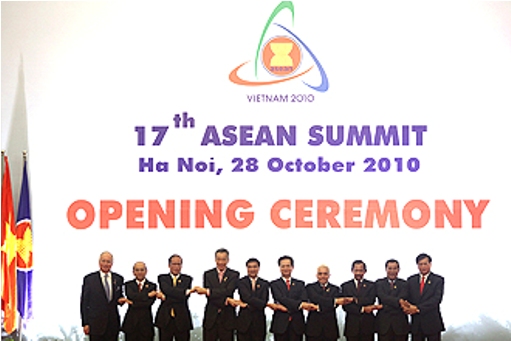
- (From left to right) Malaysian Prime Minister Najib Razak, Myanmar's Prime Minister Thein Sein, Philippine President Benigno Aquino, Singaporean Prime Minister Lee Hsien Loong, Thai Prime Minister Abhisit Vejjajiva, Vietnamese Prime Minister Nguyen Tan Dung, Indonesian Coordinating Minister for Economic Affairs Hatta Rajasa, Brunei's Sultan Hassanal Bolkiah, Cambodian Prime Minister Hun Sen, Laos' Prime Minister Bouasone Buphavanh. -- PHOTO: REUTERS
October 29, 2010 HANOI (KATAKAMI / THE STRAITS TIMES) - LEADERS of 10 southeast Asian countries will try on Thursday to fast-track an ambitious plan to establish a political and economic community by 2015 while hoping to dodge discord over military-ruled Myanmar.
Later in the week, leaders of the Association of South East Asian Nations (Asean) will be joined in Hanoi by colleagues from six Asian powers, including China, Japan and India, for a summit that will highlight Asia's role as the engine of global growth.
The region is once again attracting billions of dollars in capital inflows and its stock markets are among the world's best performers this year.
US Secretary of State Hillary Clinton joins the summit of 16 Asian countries on Saturday, underscoring a drive by the US administration to re-engage with Asia after a period of relative neglect amid unease about China's new assertiveness.
Recent tension between China and Japan over disputed islands will also likely be addressed in talks of some kind between Asia's two largest economies.
Russian Foreign Minister Sergei Lavrov will also join the East Asia Summit on Saturday while UN Secretary-General Ban Ki-moon is coming to the Vietnamese capital for meetings. -- REUTERS
10 countries back PM David Cameron on EU budget
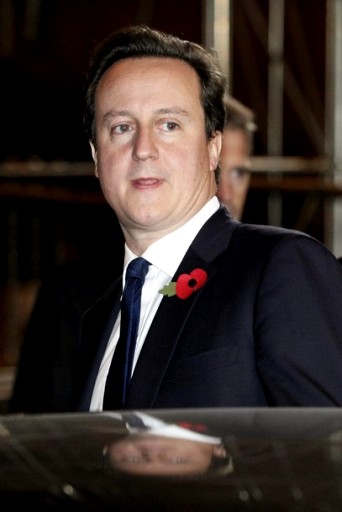
- Britain's Prime Minister David Cameron leaves a two-day Summit of the European Union Heads of States and Governments, in Brussels October 29, 2010. Cameron won support from France, Germany and others at a European Union summit on Thursday for his opposition to a planned 5.9 percent increase in the EU's budget for 2011. (Getty Images/REUTERS/Sebastien Pirlet )
October 29, 2010 (KATAKAMI / PortaDownTimes.Co.UK) --- A British move to limit next year's EU budget rise to 2.9% has been backed by 10 other countries at a summit in Brussels.
Prime Minister David Cameron rallied Germany, France, the Netherlands, Sweden, the Czech Republic, Denmark, Austria, Finland, Slovenia and Estonia behind a declaration vowing to stop eurocrats and MEPs getting the full 5.9% rise they want.The 11 have enough voting clout to form a "blocking minority" if the rest of the member states try to settle on a higher figure in arbitration between ministers, the European Parliament and European Commission which could last until the end of the year.
A 5.9% rise would boost the annual EU budget from nearly £108 billion this year to more than £114 billion in 2011, and even a 2.9% increase would add £435 million a year to Britain's EU budget payments.
Mr Cameron arrived at the summit on Thursday urging a budget freeze for Europe to reflect the austerity measures being endured in national spending cuts. When he realised that was a non-starter, he launched his petition, singing up 10 other EU leaders to pledge not to go above 2.9%.

- British Prime Minister David Cameron arrives for a European Union summit on October 28, 2010 at the European Council headquarters in Brussels. The European Union heads into a showdown summit Thursday determined to draw up new rules to avoid economic crises but divided on a risky Franco-German drive to write them into a new treaty. (Photo by GEORGES GOBET/AFP/Getty Images)
A statement initiated by Mr Cameron and issued at the summit on Thursday night in the name of the 11, described the 5.9% proposal as "especially unacceptable at a time when we are having to take difficult decisions at national level to control public expenditure".
It pointed out that EU finance ministers had already proposed an increase of just 2.9% and added: "We are clear that we cannot accept any more than this."
But one European Commission official poured cold water on the initiative, pointing out that a larger majority of EU governments backed a 2.9% rise back in July, when EU finance ministers adopted a position on the 5.9% proposal.
The summit will end with a commitment to look at ways of changing the Lisbon Treaty to answer concerns of German chancellor Angela Merkel that "bail-out" plans to head off another Greek-style economic crisis in the eurozone need strengthening. She always wanted to strip the EU voting rights from member states consistently breaching single currency rules on debt and deficit limits.
The issue does not directly affect the UK, but Mr Cameron will resist any treaty reopening which can be interpreted as ceding more powers to Brussels.
Death toll from Indonesian disasters tops 400
October 29, 2010 (KATAKAMI / THE JAKARTA POST) --- The fisherman was jolted awake by the powerful earthquake and ran with his screaming neighbors to high ground. He said they watched as the sea first receded and then came roaring back "like a big wall" that swept away their entire village.
"Suddenly trees, houses and all things in the village were sucked into the sea and nothing was left," Joni Sageru recalled Thursday in one of the first survivor accounts of this week's tsunami that slammed into islands off western Indonesia.
The death toll rose to 370 as officials found more bodies, although hundreds of people remained missing. Harmensyah, head of the West Sumatra provincial disaster management center, said rescue teams "believe many, many of the bodies were swept to sea."
Along with the 33 people killed by a volcano that erupted Tuesday more than 800 miles (1,300 kilometers) to the east in central Java, the number of dead from the twin disasters has now topped 400. Mount Merapi began rumbling again Thursday after a lull that allowed mourners to hold a mass burial for its victims. There were no reports of new injuries or damage.
The catastrophes struck within 24 hours in different parts of the seismically active country, severely testing Indonesia's emergency response network.
Aid workers trickling into the remote region found giant chunks of coral and rocks in places where homes once stood. Huge swaths of land were submerged. Swollen corpses dotted roads and beaches.
In a rare bright spot, an 18-month-old baby was found alive Wednesday in a clump of trees on Pagai Selatan - the same island where the 30-year-old Sageru lived. Relief coordinator Harmensyah said a 10-year-old boy found the toddler whose parents are both dead.
More than 100 survivors crowded a makeshift medical center in the main town of Sikakap on Pagai Utara - one of the four main islands in the Mentawai chain located between Sumatra and the Indian Ocean.
Some still wept for lost loved ones as they lay on straw mats or sat on the floor, waiting for medics to treat injuries such as cuts and broken limbs. Outside, some rescuers wore face masks as they wrapped corpses in black body bags.
A young woman named Adek sobbed uncontrollably as she tried to talk about her year-old baby who was washed away. "Oh, don't ask me again," she said, wiping her tears and turning away.
One of the hardest hit areas with 65 dead was the village of Pro Rogat, on Pagai Seatandug island.
Villagers there huddled under tarps in the rain and told how many people who had fled to the hills were now too afraid to return home.
Mud and palm fronds covered the body of the village's 60-year-old pastor, Simorangkir. He lay on the ground, partially zipped into a body bag. Police and relatives took turns pushing a shovel into the sodden dirt next to him for his grave.
His 28-year-old grandson, Rio, traveled by boat to Pro Rogat from his home on a nearby island to check on his relatives after the quake and tsunami. He said he was picking through the wreckage when someone cried out that he had found a body.
Rio walked over and saw his dead grandfather partially buried under several toppled palm trees.
"Everybody here is so sad," Rio said, as relatives prepared to lay his grandfather in the grave.
Officials say a multimillion-dollar tsunami warning system that uses buoys to detect sudden changes in water levels broke down a month ago because it was not being properly maintained. The system was installed after a monster 2004 quake and tsunami that killed 230,000 people in a dozen countries.
A German official at the project disputed there was a breakdown, saying Monday's 7.7-magnitude quake's epicenter was too close to the Mentawai islands for residents to get the warning before the killer wave hit.
"The early warning system worked very well - it can be verified," said Joern Lauterjung, head of the German-Indonesia Tsunami Early Warning Project for the Potsdam-based GeoForschungs Zentrum. He added that only one sensor of 300 had not been working and said that had no effect on the system's operation.
At the Mount Merapi volcano, hot clouds of ash spewed from the mountain around 4:30 p.m. Thursday, according to the Indonesian volcanology agency Subandriyo.
It was unclear whether the new activity was a sign of another major blast to come.
Residents from Kinahrejo, Ngrangkah, and Kaliadem - villages that were devastated in Tuesday's blast - crammed into refugee camps. Officials brought cows, buffalo and goats down the mountain so that villagers wouldn't try to go home to check on their livestock.
Thousands attended a mass burial for 26 of the victims six miles (10 kilometers) from the base of the volcano. Family and friends wept and hugged one another as the bodies were lowered into the grave in rows.
(MS)
President Dmitry Medvedev's Speech at ceremony of presenting state decorations
October 28, 2010 (KATAKAMI / KREMLIN.RU) --- PRESIDENT OF RUSSIA DMITRY MEDVEDEV: Dear comrades, it is always a pleasure to personally present state decorations for valuable achievements and good service. Notwithstanding difficult conditions of your service in the North Caucasus, you demonstrated your best professional skills and personal courage. Of course, you also helped protect our country and achieve the goals our nation has set for itself, as well as contributed to the protection of our citizens and ensuring Russia's safety.
Our Armed Forces are currently undergoing changes, and despite the fact that change is difficult, it is nevertheless necessary, because we understand the following: if we cannot make our Armed Forces modern and effective, more combat capable and better armed, if officers' wages do not provide the necessary incentives for proper service, then we will never have reliable defence capacities. Therefore, all of our current effort is aimed at designing modern and effective Armed Forces. There are both problems and good developments in this regard; I oversee the process personally as Commander-in-Chief and shall continue to do so.
I am confident that you will be able to continue your service, your service to our country. On behalf of the Russian state, on behalf of our Motherland, I would like to thank you for everything that you've done.
At the same time, I would like to welcome our new comrades who have received new appointments, namely Commander of the Western Military District Colonel General Arkady Bakhin, and Commander of the Eastern Military District Admiral Konstantin Sidenko.
I wish you success in your new posts. These new positions were created in accordance with the decisions I took as Commander-in-Chief concerning the new command structures in the Armed Forces.
I wish you success in managing the Armed Forces and ensuring the adequate military training of our troops. I expect that you will draw extensively on the expertise which you gained during military service in other positions.
Changes in the Armed Forces are difficult yet necessary, says President Medvedev
October 28, 2010 (KATAKAMI/ KREMLIN.RU) --- The Russian Armed Forces are currently undergoing changes, and despite the fact that change is difficult, it is nevertheless necessary: the efficiency and combat readiness of the Armed Forces, as well as the social and financial wellbeing of officers and their motivation are crucial conditions for ensuring Russia's defence capability. Dmitry Medvedev stated the above at a ceremony for presenting state decorations to servicemen held near Moscow.
During his visit to Solnechnogorsk County near Moscow, Dmitry Medvedev visited a training facility for specialists (snipers) and those improving their professional skills, where he examined samples of fire arms currently supplied to the Armed Forces.
The President also inspected residential buildings for officers, both recently built and under construction, in Timonovo settlement and met with executives of utility and maintenance companies rendering their services to the military base.
Photostream : Emir of Qatar State Visit To the UK

- Britain's Queen Elizabeth II bids farewell to The Emir of Qatar Sheik Hamad bin Khalifa Al-Thani at Windsor Castle, in England, Thursday, Oct. 28, 2010. Sheik Hamad bin Khalifa Al-Thani and his wife Sheika Mozah bint Nasser al-Missned have been on a state visit to England. (Getty Images / AP Photo/Kirsty Wigglesworth, pool)

- Qatar's emir, Sheikh Hamad bin Khalifa al-Thani, waves goodbye to Britain's Queen Elizabeth II and her husband Prince Philip (both not picture), as the leave on the final day of their State Visit, from Windsor Castle in Windsor, west of London, on October 28, 2010. AFP PHOTO / KIRSTY WIGGLESWORTH / POOL (Photo by KIRSTY WIGGLESWORTH/AFP/Getty Images)

- Qatar's Emir, Sheikh Hamad bin Khalifa al-Thani (L), takes the salute as he stands beside Commandant General Marriot at The Royal Military Academy in Sandhurst, southern England on October 28, 2010. The Emir is on the final day of a state visit to Britain. AFP PHOTO / ADRIAN DENNIS (Photo by ADRIAN DENNIS/AFP/Getty Images)

- Britain's Queen Elizabeth (C) toasts Qatar's Emir Sheikh Hamad bin Khalifa al-Thani (on the Queen's R) before a banquet in St George's Hall in Windsor Castle near London October 26, 2010. British Prime Minister David Cameron (1st L) and Camilla, Duchess of Cornwall (2ndL) , are also seen. Queen Elizabeth II formally welcomed the emir of Qatar to Britain for a trip aimed at boosting growing trade links and both countries' bids for the football World Cup. (Photo : KIERAN DOHERTY/AFP/Getty Images)

- (L-R) His Highness the Emir of the State of Qatar, Sheikh Hamad bin Khalifa Al Thani and his wife, Sheikha Mozah bint Nasser Al-Missned wave goodbye to Prince Charles, Prince of Wales after visiting His Royal Highness Prince Charles' School of Traditional Arts at Clarence House on 27 October, 2010 in London, England. Sheikh Hamad bin Khalifa al-Thani and his wife are on a three-day state visit to the UK and are due to visit the 2012 Olympics site later today. (Photo by Jane Mingay - WPA Pool/Getty Images)

- Prime Minister David Cameron meets the Emir of Qatar Sheikh Hamad bin Khalifa al-Thani at Downing St on October 26, 2010 in London, United Kingdom. The Sheikh is on a two day State visit to the UK, the first since 1985, which is seen as important in strengthening already strongly established business links with one of the Gulf States most financially powerful nations. (Photo by Stefan Rousseau - WPA Pool/Getty Images)
Oktober 28, 2010
Photostream : Russia's Foreign Minister Sergei Lavrov meets Polish Foreign Minister Radoslaw Sikorski
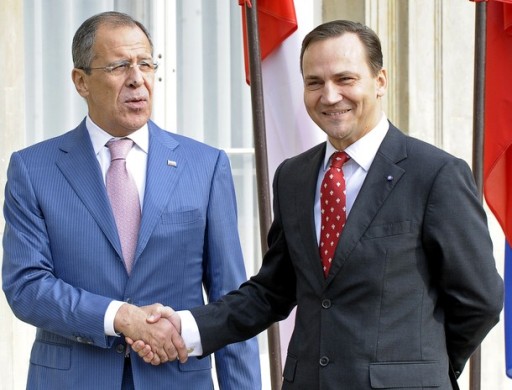
- Polish Foreign Minister Radoslaw Sikorski (R) shakes hands with his Russian counterpart Sergei Lavrov prior to their meeting on October 28, 2010 in Warsaw, ahead of a planned December visit by Russian President Dmitry Medvedev. AFP PHOTO / JANEK SKARZYNSKI (Photo : JANEK SKARZYNSKI/AFP/Getty Images)
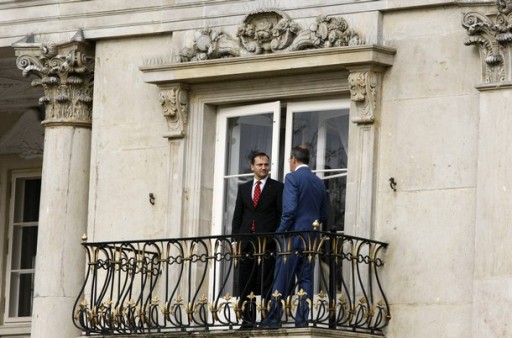
- Russia's Foreign Minister Sergei Lavrov (R) and his Polish counterpart Radoslaw Sikorski speak at the balcony of the Palace on Water in Royal Lazienki Park during a smoke brake in Warsaw October 28, 2010. Lavrov is in Warsaw for talks with his Polish counterpart Radoslaw Sikorski, expected to include preparations for planned visit to Warsaw by Russian President Dmitry Medvedev in December. (Getty Images / REUTERS/Kacper Pempel )
Russia calls on U.S. to probe human rights violations in Iraq
October 28, 2010 (KATAKAMI / RIA NOVOSTI) --- Moscow has called on Washington to hold an investigation into mass human rights violations committed by U.S. servicemen during the military campaign in Iraq between 2004 and 2009, Russian Foreign Ministry spokesman Andrei Nesterenko said on Thursday.
Over 400,000 documents related to the U.S. military operation in Iraq were published on the whistleblower WikiLeaks website on Saturday. Some 1,500 other war logs will be published later.
"We call on the government of the United States to hold an investigation and hope that the results will be made public and the rights community and all interested international structures will be informed [of the results]," Nesterenko said in a statement on the website of the Foreign Ministry.
"Of course, information on the murders of civilians, torture and other degrading treatment of detainees which, according to the media, U.S. military commanders knew about, needs detailed investigation," Nesterenko said.
"This move will demonstrate the adherence of the United States to high standards in the sphere of human rights, which they [the United States] always call on other countries to maintain," Nesternko's statement read.
The move will also help the United States "pass a serious test" which the country will have to undergo soon under the United Nations Human Rights Council's Universal Periodic Review.
The Pentagon has repeatedly called on WikiLeaks to refrain from publishing war logs because, according to the U.S. administration, they threaten the safety of both servicemen and civilians in Iraq.
MOSCOW, October 28 (RIA Novosti)
Photostream : Funeral ceremony of Mbah Maridjan, the spiritual guardian of the Indonesian volcano Mount Merapi
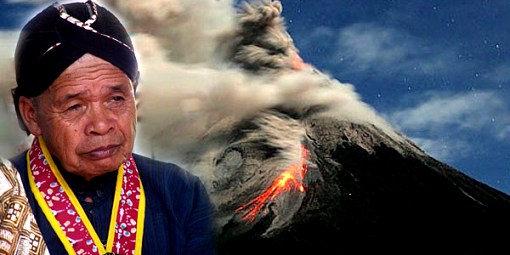
- Mbah Maridjan ("Grandfather Maridjan") was the spiritual guardian of the Indonesian volcano Mount Merapi. He was killed at the age of 83 by a pyroclastic flow that hit the village of Kinahrejo during the 2010 eruption of Mount Merapi. Maridjan was the son of the previous guardian. He was appointed to the palace staff of the Sultan of Yogyakarta, Sri Sultan Hamengkubuwono IX, in 1970 and was given the title of Mas Penewu Suroksohargo. He replaced his father as gatekeeper in 1982
David Cameron admits defeat over EU budget
• PM embarks on telephone effort to keep rise to minimum
• Summit will be dominated by German treaty demand
October 28, 2010 (KATAKAMI / GUARDIAN.CO.UK) --- David Cameron is planning to approve a £435m increase in Britain's contribution to the EU next year, prompting a row with the Tory right as he admits defeat in a battle to freeze Europe's budget.
As Eurosceptics in the party turned on the government in an emergency Commons debate on the EU, the prime minister told fellow European leaders ahead of today's summit in Brussels that he accepts the £107bn EU budget will have to increase by a minimum of 2.9%. This will take the budget to £110.2bn, with Britain contributing an extra £435.2m.
Cameron last night embarked on a diplomatic offensive by telephone to try to keep the rise to a minimum – and well below the 5.9% demanded by MEPs – at a time when many countries, including the UK, are cutting national spending.
The prime minister spoke to Angela Merkel, the German chancellor, Nicolas Sarkozy, the French president, and Herman van Rompuy, the president of the European council, about the budget, which is not on the formal agenda of today's summit but will dominate conversations on the sidelines and in meetings between government heads and officials.
David Lidington, the Europe minister, said today that the prime minister would be concentrating on trying to persuade fellow leaders of the importance of the budget issue. He told BBC Radio 4's Today programme: "What he's going to be focusing on is saying that whether it's 2011 or the more important long-term deal over the European budget, this is really something that deserves the highest priority among the leaders of all member states."
The European council has already agreed in principle a 2.9% increase, however, and British officials acknowledge that that is the minimum by which it will rise. The final figure is likely to be somewhere between 2.9% and the MEPs' preferred 5.9% and will set a baseline for the longer-term "financial perspective" which will determine the budget between 2014 and 2020.
"We are gearing up for the financial perspectives," one source said of the negotiations at which Britain's EU budget rebate will be on the table. In these negotiations Britain has a veto, unlike the annual budget negotiations, which are decided by qualified majority voting.
Cameron is trying to assemble a bloc of European leaders who can head off the MEPs' demands and ensure that the financial perspective is kept down. He also spoke to Fredrik Reinfeldt, the Swedish prime minister, and Yves Leterme, his Belgian counterpart, last night.
A Downing Street spokesman said: "In all of his calls, he set out the case for fiscal discipline in the EU budget. Many countries across Europe had engaged in challenging national programmes to cut spending and rein in budget deficits. The eurozone itself had been working on new arrangements for ensuring individual members of the eurozone managed their public finances responsibly.
"Now the EU as a whole needed to show that it would make its contribution too. This meant agreeing the lowest possible EU budget for 2011, and demonstrating real restraint as we approached negotiations on the next financial perspective."
Even accepting the 2.9% budget increase will anger Tory Eurosceptics who have been urging the government to fight for a freeze or a cut.
Labour has accused the Tories of failing to "stand up for the British interest". Wayne David, the shadow Europe minister, said: "In government Labour argued strongly for a freeze in this year's European Union budget, and Labour MEPs voted against the increase in the European parliament. The Conservatives have talked tough on this issue but they haven't got a result. Instead they have entered government isolated, and failed to stand up for the British interest in their first budget test. The Tories are desperate to not talk about Europe, but their failure to speak up is costing Britain."
The concession over the budget represents a blow for Cameron, who said as recently as last week that he wanted to see the sum cut, or at least frozen, as Europe plays its part in reducing costs during a period of fiscal austerity.
Today's summit will be dominated by German demands for a new EU treaty. Merkel is facing a backlash from small EU states over her demand that the €110bn bailout for Greece and the wider €750bn bailout fund for others must be placed on a legally watertight basis.
Cameron, who had hoped that the EU would not need to undergo treaty change for another decade, is expected to tell the German chancellor that Britain will find it easier to support her demands if the budget is trimmed.
One British government official commented: "Treaty change is not where we would want to be at this time, but we will see what happens [at the summit]. We would not go along with any changes which would amount to a transfer of more powers to Brussels, but eurozone economic sanctions do not apply to us.
"On the other hand, 40% of our exports are to the eurozone member states and it is important to us that there is economic stability in the eurozone so we support whatever measures are necessary [to maintain stability]."
Lidington said this morning: "It's very far from clear there is a consensus even with the eurozone countries for a treaty change. We are not going to sign up to any treaty change that transfers powers from the United Kingdom to Brussels institutions."
Yesterday Mark Hoban, the financial secretary to the Treasury, also made this point, telling the Commons: "We will not agree to any changes to EU treaties that would move more powers from this country to the EU. The UK's exemption from the sanctions proposal will be explicit. There will be no shift in sovereignty from Westminster to Brussels."
No 10 was given a taste of the perils of EU negotiations yesterday when a host of Eurosceptic Tories stood up during the Commons emergency debate to denounce the proposed budget increase and the German demands for treaty change.
Peter Lilley, the former cabinet minister famously denounced by John Major as a Eurosceptic "bastard", said Cameron should demand concessions as the price for agreeing to a treaty change. In a question Lilley said: "Can he assure me that we will not give that support without demanding a price? This is the ideal opportunity to obtain that price."
In First, British Spy Chief Goes Public
October 28, 2010. LONDON (KATAKAMI / NYTimes) — At an appropriately hush-hush venue, before a not-so-hush-hush audience of newspaper editors and television cameras, the chief of Britain’s Secret Intelligence Service, on Thursday made the first public appearance by a serving chief of the agency, known as MI6, in its 101-year history.
Sir John Sawers took over the agency after the retirement of his predecessor late last year. Previously he had been a high-profile diplomat, serving as Britain’s ambassador to the United Nations and in other posts.
Sir John “will step out of the shadows today to make an unprecedented public intervention,” the Press Association news agency said, noting that his host, the Society of Editors, had requested that the venue for his speech not be made public. His appearance extended a trend among Britain’s spy bosses to shed the traditional cloak of their trade.
“Wherever possible the public should be told what is being done in their name. The default switch should be set to release information unless there is an extremely good reason for withholding it,” said Bob Satchwell, the head of the Society of Editors.
“We are glad to provide a platform that will encourage greater openness which will help to build confidence and respect for our intelligence services in their vital work in protecting national security.”
“Why now, might you ask?” Sir John said. The answer, he said, was that despite its prominence in the news, the debate about MI6 was not well-informed and “in today’s open society, no government institution is given the benefit of the doubt all the time.”
The organization traces its history to a decision by defense planners in 1909 to create a Secret Service Bureau. The body evolved through two world wars and the Cold War, feeding the plot lines and character lists of spy thrillers from James Bond to George Smiley. But for decades, the identity of its chief — known only as C, according to the Press Association — was the biggest secret of all.
Despite the nature of Sir John’s job, said Frank Gardner, the BBC’s security correspondent, “this is someone who loves the limelight.”
MI6 focuses on overseas operation while its domestic counterpart, MI5, is responsible for domestic security.
Even before his appointment, Sir John seemed to offer something a break with tradition, shown in Facebook photographs having fun in a park, wearing a red fleece and a Santa Claus hat and playing Frisbee on a beach.
The photographs were posted by Sir John’s wife, Shelley, who had chronicled the activities of her family and friends on the Facebook page, whose existence was disclosed by the tabloid Mail on Sunday.
Sir John’s appearance followed a first public speech by Iain Lobban, the director of Britain’s electronic eavesdropping agency, and several appearances by Jonathan Evans, the director general of MI5.
While he has not spoken publicly until Thursday about the work of MI6, he made two public appearances to give evidence at an official inquiry into the Iraq war about earlier assignments as a foreign policy adviser to former Prime Minister Tony Blair and as the British representative in Baghdad.
Langganan:
Postingan (Atom)

